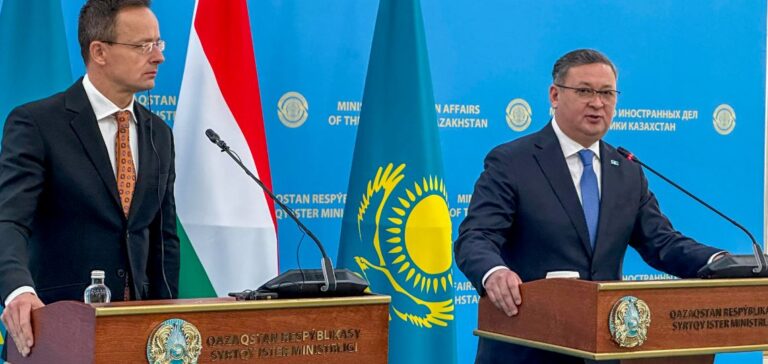Kazakh authorities announced the signing of a historic agreement with Hungary in February 2025, allowing Kazakhstan to increase its oil exports to Central Europe. The deal primarily involves the use of the Druzhba pipeline, one of the largest oil transportation networks in Europe, linking Russia with several countries in Eastern Europe, including Hungary.
Context of the Agreement
The agreement, which marks a significant step forward in energy relations between the two countries, is part of Kazakhstan’s efforts to diversify its oil export routes. This project comes at a time when traditional Russian pipelines, especially those heading toward Western Europe, are under increasing geopolitical and commercial pressure. Through this collaboration, Hungary, a key member of the European Union, becomes a strategic transit point for Kazakh oil toward Central Europe.
Implications for Kazakhstan
Kazakhstan, the third-largest oil producer in Central Asia, is actively seeking to reduce its dependence on exports via Russia. The country has targeted the expansion of its pipeline network to access new markets. This agreement with Hungary allows Astana to secure a new revenue stream and strengthen its position as an alternative energy supplier to Russia. Although specific volumes have not been disclosed, the project is expected to play a key role in increasing Kazakhstan’s market share in Europe.
Consequences for the European Market
For Hungary, this agreement marks a significant step in improving its energy infrastructure. The country will directly benefit from the increased use of the Druzhba pipeline, which could make it a key transit point for other European countries. In the long term, this development could also influence the stability of oil prices in Central Europe, depending on the evolution of energy flows from Kazakhstan.
Market Reactions and Outlook
Market players have had mixed reactions to the deal. Some experts view this partnership as a strategic response to geopolitical tensions in Eastern Europe, particularly following sanctions on Russia and the growing energy uncertainty. However, others argue that this agreement is just one of many efforts aimed at securing European energy supplies. Market participants are closely monitoring oil price developments, particularly the short- and medium-term impacts of this new dynamic.






















